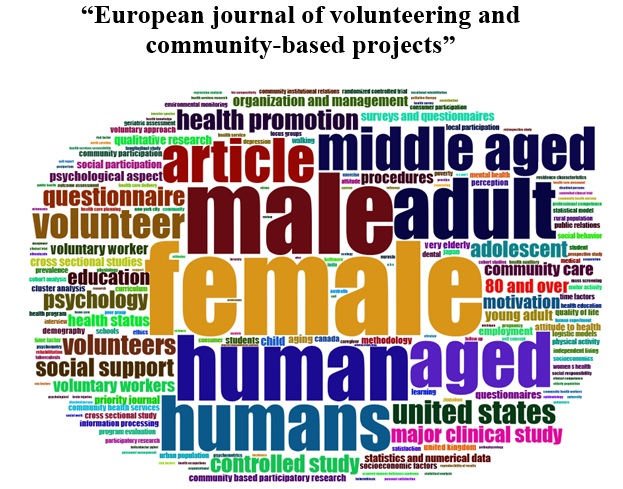Social Equity and Sustainability in the Third Sector and Healthcare: Hybrid Governance, Accountability, and Innovation
Call for paper
Social Equity and Sustainability in the Third Sector and Healthcare: Hybrid Governance, Accountability, and Innovation
Valerio Brescia, University of Milan, e-mail: valerio.brescia@unimi.it
Anna Prenestini, University of Milan, e-mail: anna.prenestini@unimi.it
Federico Chmet, University of Turin, e-mail: Federico.chmet@unito.it
Francesca Dedomenico, University of Palermo, e-mail: francesca.dedomenico@unipa.it
Social equity and sustainability are among the most urgent challenges faced by societies today (Tiggelaar & George, 2025; Nichols, 2024). The third sector, rooted in volunteering and community-based organizations, has historically provided a vital contribution to social cohesion and inclusion promoting diversity management and mobilizing civic participation and collective responsibility (Brescia, 2020). At the same time, healthcare systems, increasingly exposed to demographic pressures, financial constraints, and technological transformations, are called upon to guarantee universal access, equity in service delivery, and long-term resilience (Longo & Saadati, 2025).
Although different in scope, both the third sector and healthcare share a common trajectory: they pursue sustainability by embedding social equity and diversity management at the heart of their missions. Hybrid collaborations between public institutions, non-profit organizations, and community-based entities demonstrate how governance, transparency, and accountability can be leveraged to respond to societal needs in innovative and sustainable ways. These partnerships often rely on managerial and accounting tools to evaluate performance, measure social impact, and assess the value created for communities.
Recent research has mapped the growing relevance of volunteering and community-based practices in advancing social innovation and sustainability (Brescia, Secinaro, & Calandra, 2024). Empirical evidence from initiatives highlights how public–third sector partnerships in healthcare can benefit from integrated performance evaluation to improve governance and outcomes (Amelio et al., 2025). In crisis periods, healthcare financing can lean on outcome-based instruments such as Social Impact Bonds (SIBs) or health impact bonds (HIBs) to mobilize private capital linked to social objectives (Williams, 2024; Shiva, 2024). At the same time, the third sector often resorts to fundraising campaigns, social bonds, or philanthropic capital, mechanisms that combine donations, grants, and social-finance tools, to sustain its community-based activities (Olson et al.,2024). The turn toward stakeholder capitalism and popular reporting shows how new forms of accounting and disclosure can reinforce legitimacy, transparency, inclusion, and diversity management in both social and health contexts (Biancone et al., 2024). Furthermore, the integration of artificial intelligence and knowledge management into healthcare underscores the potential of technological innovation to advance the Sustainable Development Goals, provided it remains grounded in ethical and equitable practices (Brescia, Degregori & Cavazza, 2025; Ugwu et al., 2025; Mauro et al., 2024).
This call welcomes scholarly contributions that address the intersections between social equity and diversity management and sustainability in the third sector and healthcare, examining how hybrid governance models, managerial approaches, and accounting systems can generate public value, enhance transparency, and contribute to more equitable and sustainable societies. Selected contributions will also be considered for publication in the European Journal of Volunteering and Community-Based Projects.
Keywords: Social equity, Sustainability, Third sector, Healthcare governance, Impact evaluation
This call for papers is connected to the conference The New Sustainability Agenda, which will be held on June 4–5, 2026 at Villa Romanazzi Carducci in Bari 2nd LUM Conference on Accounting, Banking, and Finance Research.
References
Amelio, S., Gazzola, P., Biancone, P., & Brescia, V. (2025). Sustainability and performance evaluation in third sector partnerships: the case of turin fast track city. Financial Accountability & Management, 41(2), 381-397.
Biancone, P. P., Secinaro, S., Brescia, V., & Calandra, D. (2024). Which direction for stakeholder capitalism? Approaches and reporting towards POP accounting. Sustainable Development, 32(6), 6579-6594.
Brescia, V. (2020). Bibliometrix analisi: volontariato e community-based. European journal of volunteering and community-based projects, 1(1), 1-22.
Brescia, V., Degregori, G., & Cavazza, A. (2025). Artificial intelligence and knowledge management in healthcare: a pathway to SDGs achievement. VINE Journal of Information and Knowledge Management Systems.
Williams, J. W. (2024). Finance interrupted: Social impact bonds, spatial politics, and the limits of financial innovation in the social sector. Environment and Planning A: Economy and Space, 56(1), 42-58.
Longo, V., & Saadati, S. A. (2025). Future-proofing health systems: Strategies for sustainable universal healthcare. Journal of Foresight and Health Governance, 2(2), 1-14.
Mauro, M., Noto, G., Prenestini, A., & Sarto, F. (2024). Digital transformation in healthcare: Assessing the role of digital technologies for managerial support processes. Technological Forecasting and Social Change, 209, 123781.
Nichols, C. (2024). Equity and empowerment effects: Multiple styles of ‘voluntarism’in community-based health projects. World development, 174, 106448.
Olson, H., Painter, G., Albertson, K., Fox, C., & O’LEARY, C. H. R. I. S. T. O. P. H. E. R. (2024). Are social impact bonds an innovation in finance or do they help finance social innovation?. Journal of Social Policy, 53(2), 407-431.
Shiva, M. (2024). Seeking outcomes under tight budgets: A case for health impact bonds in Post‐COVID times. The International Journal of Health Planning and Management, 39(2), 343-362.
Tiggelaar, M., & George, B. (2025). No two-party game: How third-sector organizations alter administrative burden and improve social equity. Public Management Review, 27(2), 473-494.
Ugwu, C. N., Ugwu, O. P. C., Alum, E. U., Eze, V. H. U., Basajja, M., Ugwu, J. N., ... & Uti, D. E. (2025). Sustainable development goals (SDGs) and resilient healthcare systems: Addressing medicine and public health challenges in conflict zones. Medicine, 104(7), e41535.
Read more about Social Equity and Sustainability in the Third Sector and Healthcare: Hybrid Governance, Accountability, and Innovation

